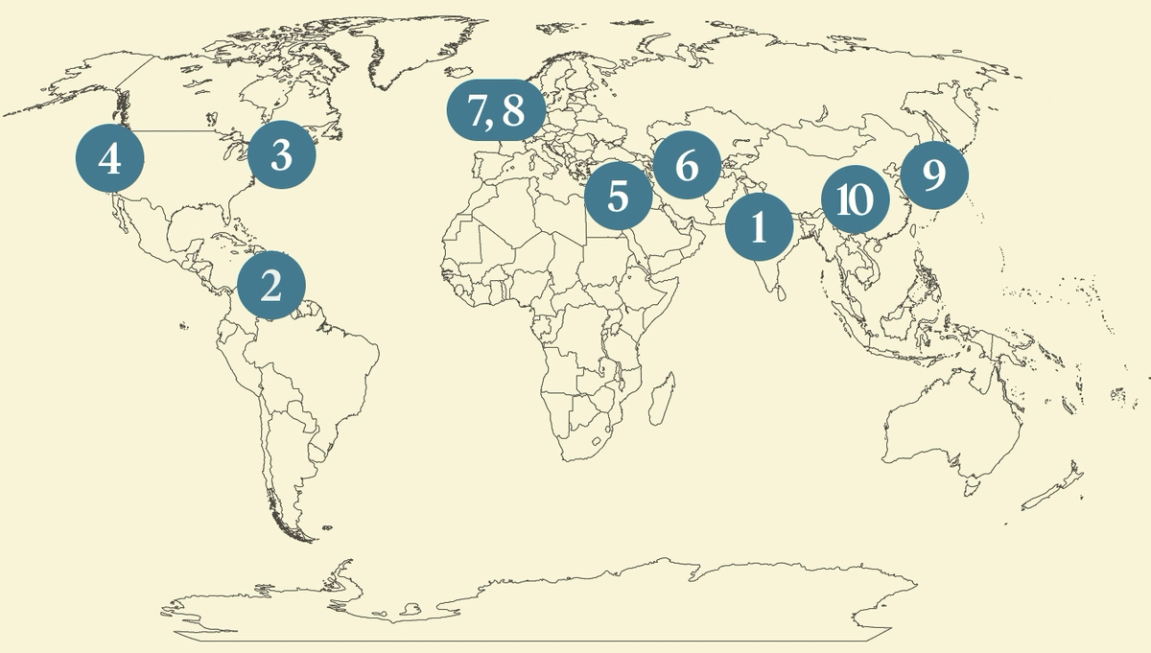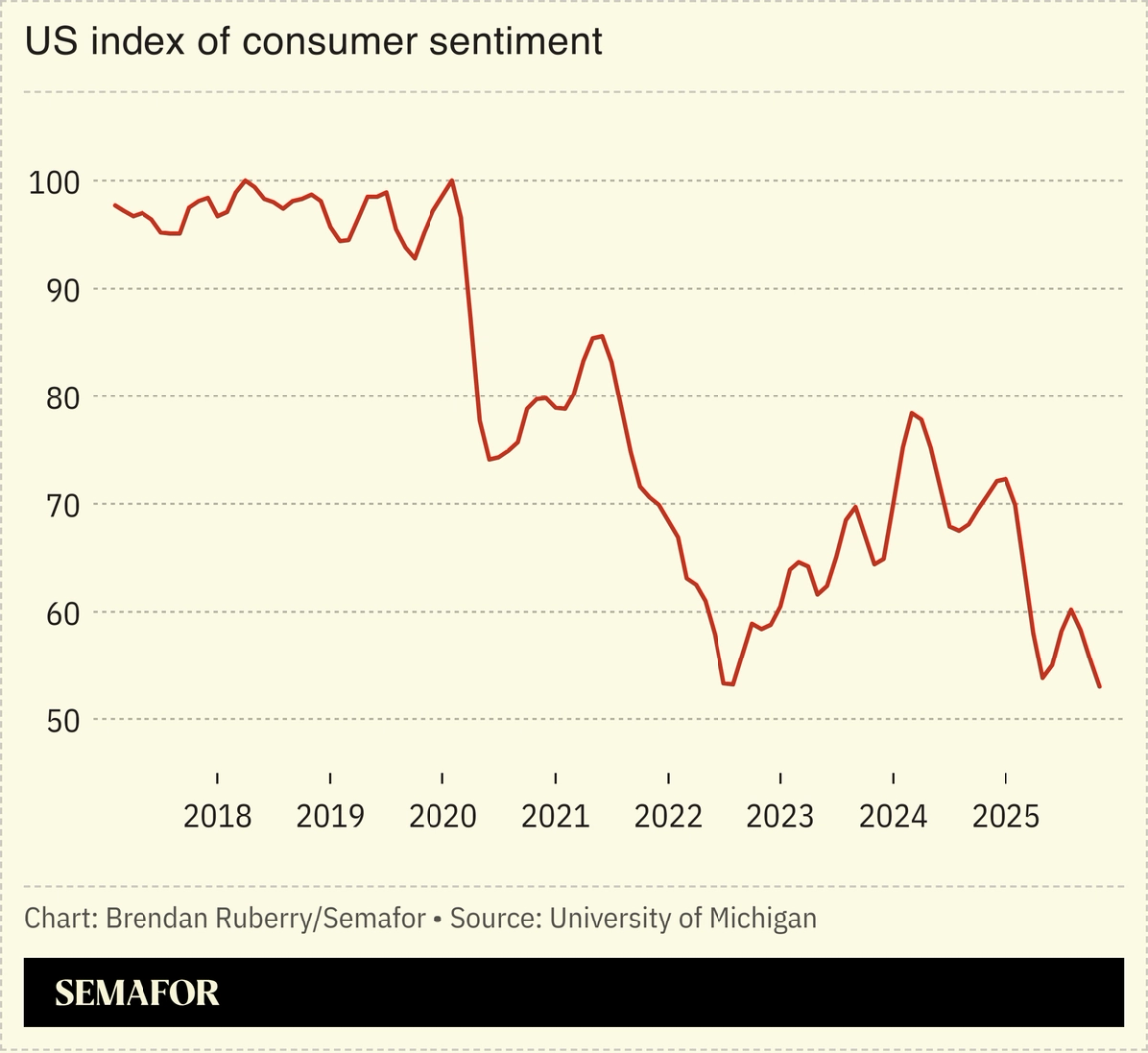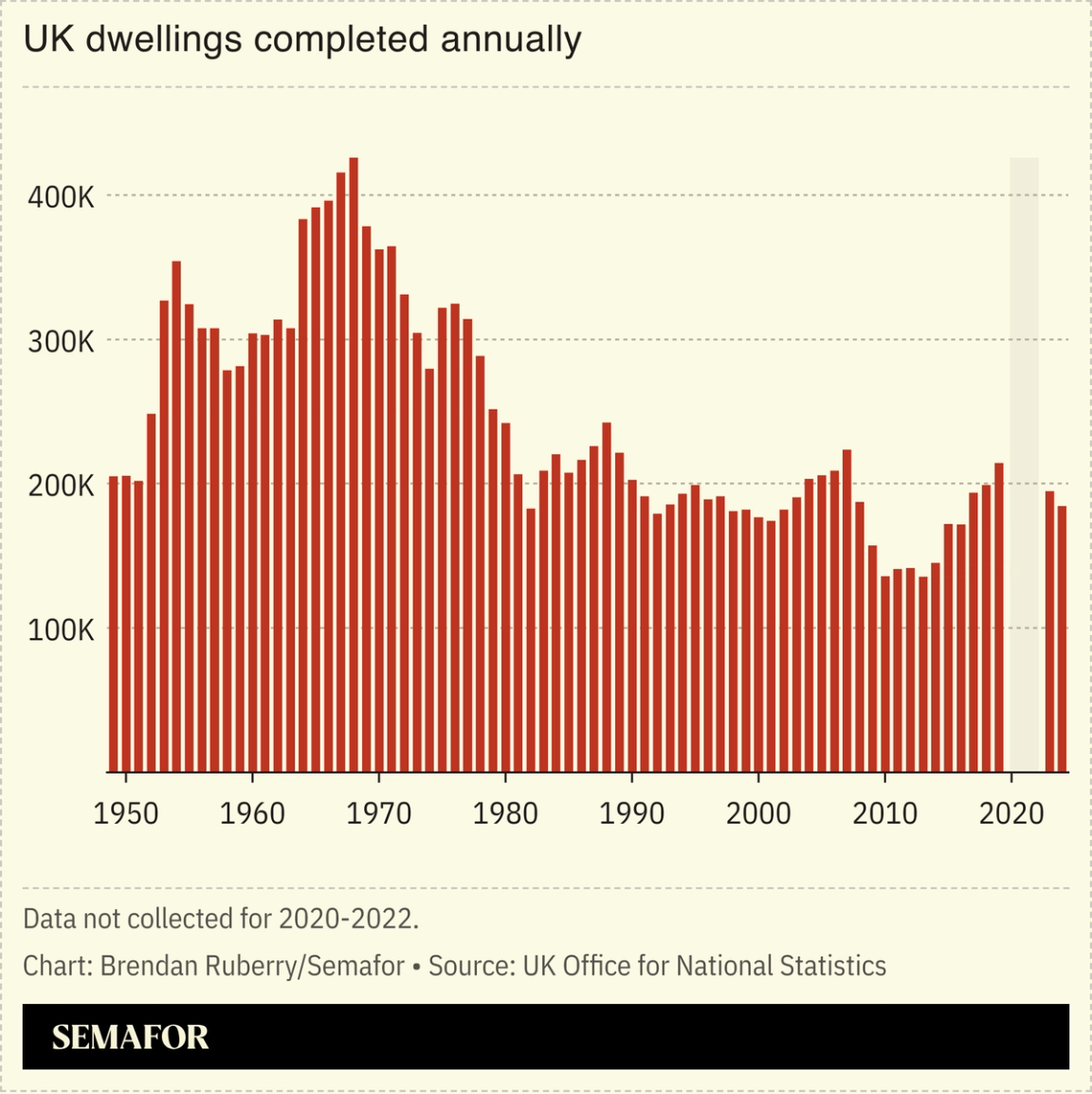| | The US deepens military tensions with Venezuela, Gaza peace plan progress falters, and China warms t͏ ͏ ͏ ͏ ͏ ͏ |
| |   ISLAMABAD ISLAMABAD |   SHANGHAI SHANGHAI |   TAIPEI CITY TAIPEI CITY |
 | Flagship |  |
| |
|
The World Today |  - Blasts in India, Pakistan
- US-Venezuela tensions flare
- Shutdown’s economic impact
- China, US in AI cold war
- Gaza peace plan obstacles
- Tehran evacuation warning
- BBC in crisis
- London housing woes
- K-beauty in China
- Baijiu maker takes a hit
 An exhibition for a boundary-breaking but virtually unknown painter, and why the economy is running on magic beans. |
|
India, Pakistan blasts test stability |
 Near Red Fort in Delhi. Adnan Abidi/Reuters Near Red Fort in Delhi. Adnan Abidi/ReutersBlasts in the capitals of India and Pakistan raised tensions between the neighboring rivals. A day after a car explosion killed eight people in New Delhi, authorities said they are investigating it as a possible terrorist attack, and the Indian prime minister warned the perpetrators “will not be spared.” Without offering evidence, Pakistan blamed India for a suicide bombing in Islamabad that killed at least 12 people on Tuesday. The two countries’ relationship is “already on tenterhooks” after their brief armed conflict earlier this year, an expert noted, pointing to growing “stability risks… across a wide expanse of South Asia.” Pakistan has also been involved in border clashes with Afghan militants. |
|
US naval buildup in LatAm waters |
 Ricardo Arduengo/Reuters Ricardo Arduengo/ReutersThe US’ expanding naval presence around Latin America is deepening military tensions with Venezuela. The US fleet’s most advanced aircraft carrier arrived in Caribbean waters Tuesday, as Venezuela raised its military alert levels; the country reportedly plans to respond to a potential US attack with guerrilla-style resistance. Washington said the move was to disrupt narcotics trafficking — more than a dozen US strikes have targeted boats allegedly carrying drugs. But assets like the USS Gerald R. Ford are meant to project power and deterrence, The Washington Post reported: “The only reason to move it there is to use it against Venezuela,” one expert said. The deployments prompted the UK to suspend some intelligence sharing with Washington, CNN reported. |
|
 US representatives were urgently called back to Washington, where lawmakers are on track to end the country’s longest government shutdown as early as Wednesday. The planned vote in the House comes after senators approved a funding measure despite top Democrats’ opposition. The toll of the 42-day shutdown on the US economy could take months to determine: Much of the estimated $15 billion in weekly lost activity will be recouped as federal workers start collecting paychecks and travelers can confidently book holiday tickets, Semafor’s Liz Hoffman wrote. But the standoff took a toll on consumer sentiment — now at its lowest level since June 2022 — and the disagreement over health insurance premiums that ignited it will squeeze Americans already pulling back. |
|
Silicon Valley adopts Chinese AI |
 Huang Zongzhi/Xinhua via Getty Images Huang Zongzhi/Xinhua via Getty ImagesSilicon Valley is increasingly running on Chinese AI, raising the stakes of the US and China’s battle for technological supremacy. Airbnb’s CEO recently said the company prefers Alibaba’s Qwen over OpenAI’s ChatGPT for its customer service chatbot, and hot startups like Cognition AI and Thinking Machines Lab are similarly embracing Chinese tech, with the country’s low-cost, open-source models outweighing US security and geopolitical concerns, Bloomberg wrote. The shift comes as Nvidia’s CEO said last week that China was “nanoseconds behind” the US in AI; the superpowers are locked in an AI cold war driven “as much by fear as by hope of progress,” The Wall Street Journal wrote, and the outcome will “redefine everything.” |
|
Gaza peace plan progress falters |
 Nir Elias/Reuters Nir Elias/ReutersEfforts to advance a US peace plan for Gaza appear to be faltering over reconstruction and security challenges. Israel still controls just over half of the enclave, and Hamas the rest, with territorial divides marked by yellow concrete blocks. Without a timeline for further Israeli withdrawals, and with Hamas’ refusal to disarm, this de facto partition could last years, Reuters reported, with reconstruction likely limited to the Israeli-controlled side. The US’ plan to build “communities of vetted Gazans” on the Israeli side “risks creating an enduring divide down the middle of Gaza,” The Atlantic wrote. Private US government documents have also raised questions about the feasibility of deploying a multinational peacekeeping initiative in the territory, according to Politico. |
|
Tehran evacuation warning over drought |
 Majid Asgaripour/WANA via Reuters Majid Asgaripour/WANA via ReutersIran’s president warned that Tehran may have to be evacuated because of an unprecedented nationwide drought. Reservoirs supplying Mashhad, the second-biggest city, are at 3% capacity, while those serving Tehran are below 5%. The capital has seen no rainfall in autumn for the first time in 100 years, but the problem goes beyond: Groundwater levels are sinking, thanks to illegal well drilling, unsustainable agriculture, and rising temperatures, The New York Times reported. Iran is not alone in seeing falling water tables. In Pakistan’s Lahore, aquifers are increasingly running dry, much of northern China is seeing a groundwater “crisis,” and Chennai in India is similarly afflicted, as a result of both climate change and environmental mismanagement. |
|
 Jack Taylor/Reuters Jack Taylor/ReutersThe future of the BBC is uncertain as it grapples with the resignations of two top executives, legal threats from US President Donald Trump, and a polarized public. The British broadcaster is “exposed and rudderless” following the high-profile departures over a dubiously edited 2021 Trump speech, The Guardian wrote. The controversy reflects the uniquely divisive nature of contemporary politics, an UnHerd editor argued: “For a growing number of political issues, there is no ‘neutral.’” It also mirrors the “destructive energy” that now defines the UK’s national mood, veteran journalist Tina Brown noted. The crisis comes at a particularly fraught time for the BBC: Its government charter is up for renewal in 2027. |
|
 Join over 2 million readers who trust The Hustle for their daily 5-minute read on business and tech stories that actually matter. Become part of this informed community that starts each day with essential insights delivered with a fun, engaging twist. Sign up today. |
|
London housing crisis hits UK economy |
 London’s housing crisis is holding back the entire British economy, figures show. The capital is now the UK’s weakest-growing region, a problem when it accounts for almost a quarter of the country’s economy. London’s economy relies on a skilled workforce, an economist told the BBC, but it has missed housebuilding targets, and the shortage means that many workers cannot afford to live there. Many of the city’s primary schools are closing as families are unable to afford suitably sized homes. London is not alone: Housing affordability has declined sharply in the last decade, a recent Goldman Sachs report found, driven by land use restrictions, and the costs of mortgage payments and rent have risen relative to income. |
|
China warms to K-beauty, fashion |
 Kim Soo-hyeon/Reuters Kim Soo-hyeon/ReutersChina is regaining its allure as a market for K-beauty brands, with Beijing signaling an openness to Korean cultural exports amid thawing tensions. China was once considered a “graveyard for Korean firms,” but beauty brands are relocating their Chinese R&D bases to Shanghai, bringing them closer to regulators and pointing to increased business confidence, the Korea Economic Daily reported. Korean fashion designers and e-commerce platforms are also opening up physical locations in affluent Shanghai districts. The optimism follows a recent summit between the countries’ leaders, who pledged to strengthen ties after years of contention. One benchmark that remains a ways off: a |
|
|